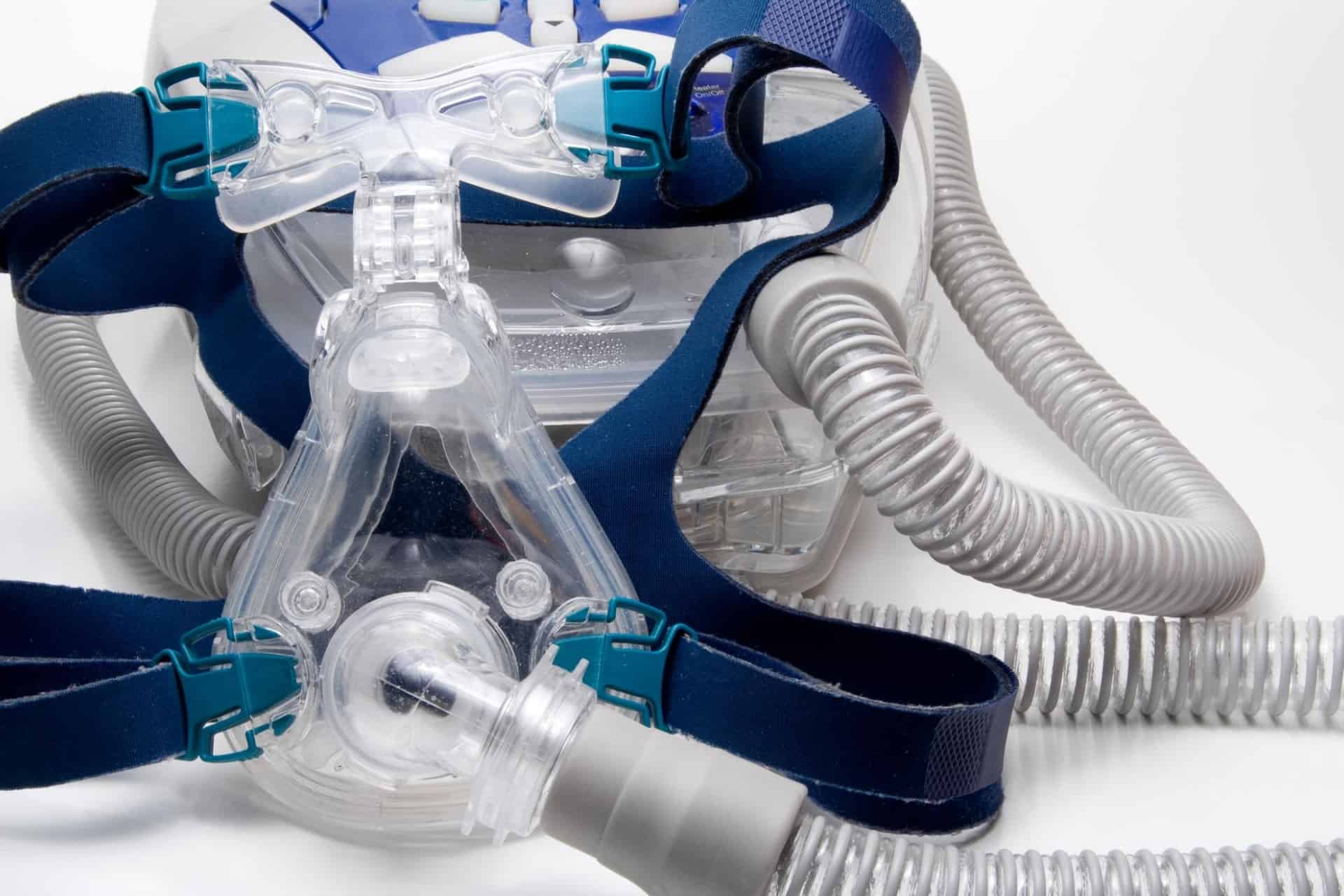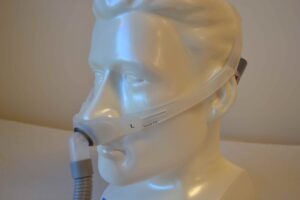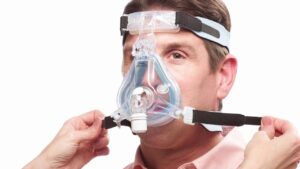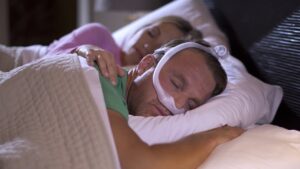People who suffer from obstructive sleep apnea (OSA) frequently discover that a humidifier CPAP machine is essential for more pleasant sleep treatment. Moisturized air soothes and protects your airways from dryness and inflammation. However, it is critical to remember to only use distilled water in the humidifier’s water chamber. Although tap water from the faucet is more convenient for many CPAP users, CPAP makers and physicians strongly advise patients to only use distilled water in their humidifier chambers and it is for a good reason!
You don’t want to breathe in tap water mineral deposits, bacteria, or pathogens. These impurities can also accumulate in your supplies over time, causing harm to your CPAP tubing and motor. You should place only distilled water in the water chamber for use. To summarise, distilled water is beneficial for your health and the lifetime of your CPAP equipment.
Why Should You Use a CPAP Humidifier?
Humidification can improve user comfort by providing moisture to the air that goes through your cpap machine for sleep apnea, reducing nasal, mouth, and throat discomfort. Heated CPAP tubing can help people who find the airflow too chilly or detect condensation.
Heated humidifiers and water chambers reduce the dryness induced by CPAP machine and may help avoid sore throats. Moisture can also aid in the relief of nasal congestion and blockages caused by allergies and colds. Learn more what causes CPAP dry mouth and how can you avoid It?
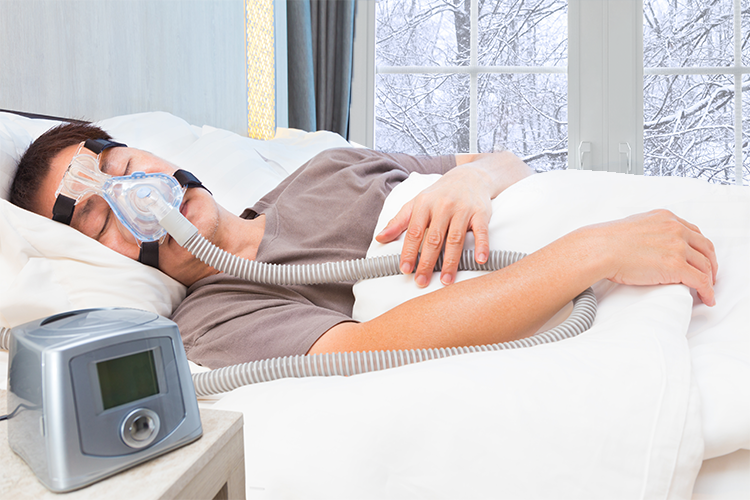
Why Can’t I Use Tap Water in My CPAP Humidifier?
While most countries purify tap water for public consumption, it may still contain trace contaminants like mineral deposits, bacteria, and chemicals you don’t want to breathe in. Different parts of Australia, as well as distinct nations across the world, have different legislation. These impurities can also accumulate in your supplies over time, causing harm to your CPAP tubing and motor. You should place only distilled water in the water chamber for use. In short, distilled water is superior to purified water in terms of health and your CPAP equipment’s lifetime.
When filling your humidifier chamber, remember that even boiling your tap water will not entirely remove minerals or chemical impurities, but it can kill germs. The water will continue to be hard, indicating that it includes minerals such as calcium, iron, magnesium, and others.
Filtered or bottled water may not contain as many minerals but is also not completely devoid of harsh chemicals or bacteria.
Distilled water is the best option for keeping your equipment working at peak efficiency. If you have previously used tap water for your CPAP humidification, immerse the water tub in white vinegar to eliminate any buildup and carefully rinse before using it again. Remember, only distilled water from now on!
The Advantages of Distilled Water
Distilled water will guarantee that your CPAP machine runs properly and that you get the most out of your CPAP therapy. It will moisturise and ease your airway pressure while preventing germs from entering your sinuses and lungs.
In an emergency, bottled water is safer than tap water, albeit not as safe as distilled water. To discover water that is safe to drink, carefully examine the labels on the water containers. If you can’t obtain distilled water, you should be alright without using your humidifier until you get home.
Because the water in your humidifier will be in contact with your lungs, using simply distilled water is critical for your health. Water softeners, soaps, essential oils, and other household products might expose you to harsh chemical vapours like bleach, chlorine, and alcohol.
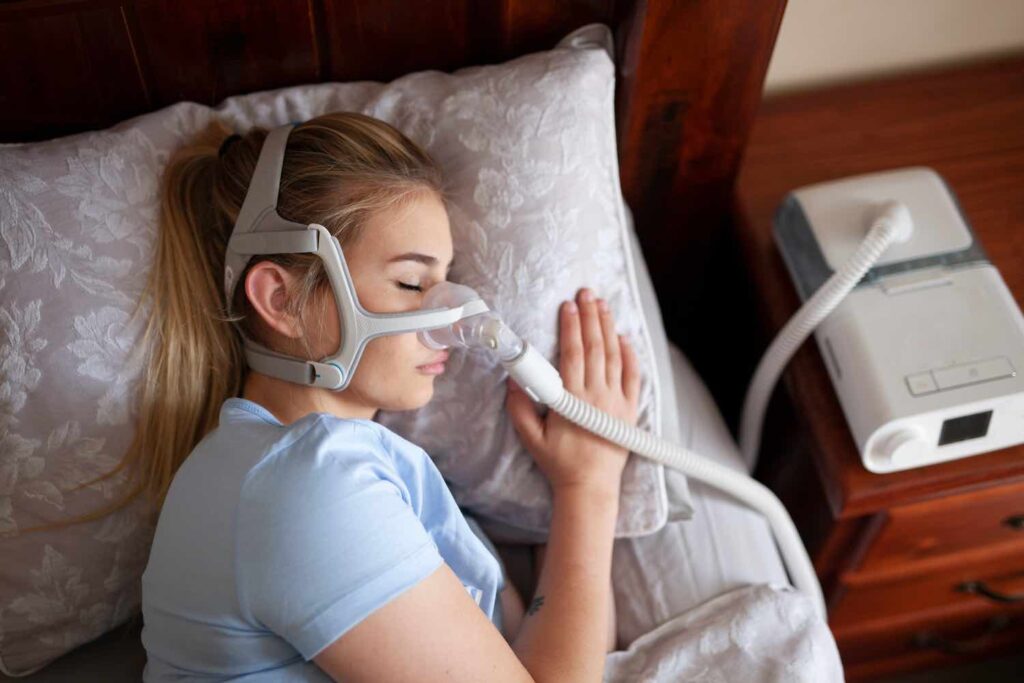
What Kind of Water Should I Use While Traveling?
If water appears harmful to drink, it is most likely unsafe to inhale. When travelling, avoid using tap water since it may be polluted, exposing you to dangerous substances such as bleach, ammonia, and chlorine.
Keeping Your CPAP Humidifier Clean
Speaking of your safety and smooth CPAP therapy process, it is critical for your health to keep your CPAP equipment clean to avoid the accumulation of germs, viruses, allergies, mildew, bacteria, and other contaminants.
To keep your humidifier clean, follow these steps:
- Change the CPAP water regularly to prevent germs from growing in stagnant water.
- Gently remove your humidifier from the machine once a week and wash it in warm, soapy water. Allow it to air dry completely before replacing it.
- Soak your humidifier for about 20 minutes once a week in a solution of one-part vinegar to three parts water before thoroughly rinsing it with distilled water.
- Alternatively, use a CPAP cleaner, such as the Lumin, to instantly eliminate 99 percent of dangerous bacteria without water.
- Some CPAP humidifiers may be washed in the dishwasher; check your product documentation to be sure.
- According to your supply schedule, replace your humidifier regularly. You should change them every six months in general.
Do you require new CPAP accessories?
Air Liquid Healthcare covers all of your sleep apnea needs, from CPAP machines and masks to tubing and filters. You’ll also have the opportunity to interact with a professional when you get in touch with us, via our website, access our user-friendly website today and benefit from world-class resources. You will surely get any CPAP products or accessories you need from our online store with maximum warranty and at a competitive price..

